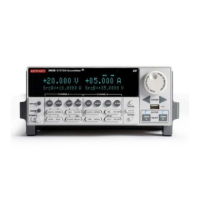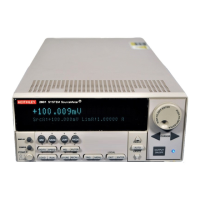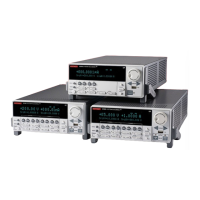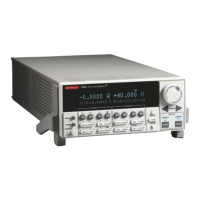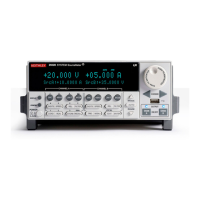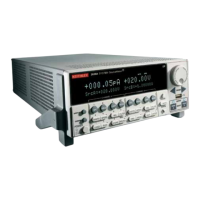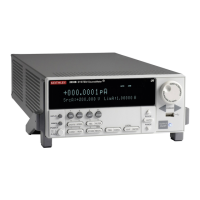7: TSP command reference Series 2600B System SourceMeter® Instrument
7-198 2600BS-901-01 Rev. C / August 2016
Details
This function causes the SMU to regenerate the reading buffer statistics about the specified reading
buffer. Because the SMU automatically updates reading buffer statistics when data is added to the
reading buffer, this function is generally not needed. When the reading buffer is configured to wrap
around and overwrite older data with new data, the buffer statistics will include the data that was
overwritten. Use this function to recalculate the statistics that include only the data that is presently
stored in the buffer.
Also see
bufferVar.fillmode (on page 7-24)
smuX.buffer.getstats() (on page 7-196)
smuX.cal.adjustdate
This attribute stores the date of the last calibration adjustment.
Type TSP-Link accessible Affected by Where saved Default value
Attribute (RW) Yes SMU cal. restore SMU nonvolatile
Initially set to factory calibration date
Usage
adjustDate = smuX.cal.adjustdate
smuX.cal.adjustdate = adjustDate
Date of the last calibration adjustment
Source-measure unit (SMU) channel (for example, smua.cal.adjustdate
applies to SMU channel A)
Details
This attribute stores the adjustment date associated with the active calibration set. The adjustment
date can be read at any time, but can only be assigned a new value when calibration has been
enabled with the smuX.cal.unlock() function.
You cannot change the adjustment date without first making a change to the calibration constants.
Once you change any calibration constants, you must set the adjustment date before you can save
the calibration data to the SMU's nonvolatile memory.
This attribute is stored with the active calibration set. If a different calibration set is restored, this
attribute reflects the date stored with that set.
smuX.cal.adjustdate must be set to the date the adjustment was done using the UTC time and
date. The date is stored as the number of seconds since UTC, 12:00 am Jan 1, 1970.
Due to the internal storage format, smuX.cal.adjustdate is only accurate to within a few minutes
of the value set.
Example
smua.cal.adjustdate = os.time()
Sets the adjustment date for SMU channel A to the current
time set on the instrument.
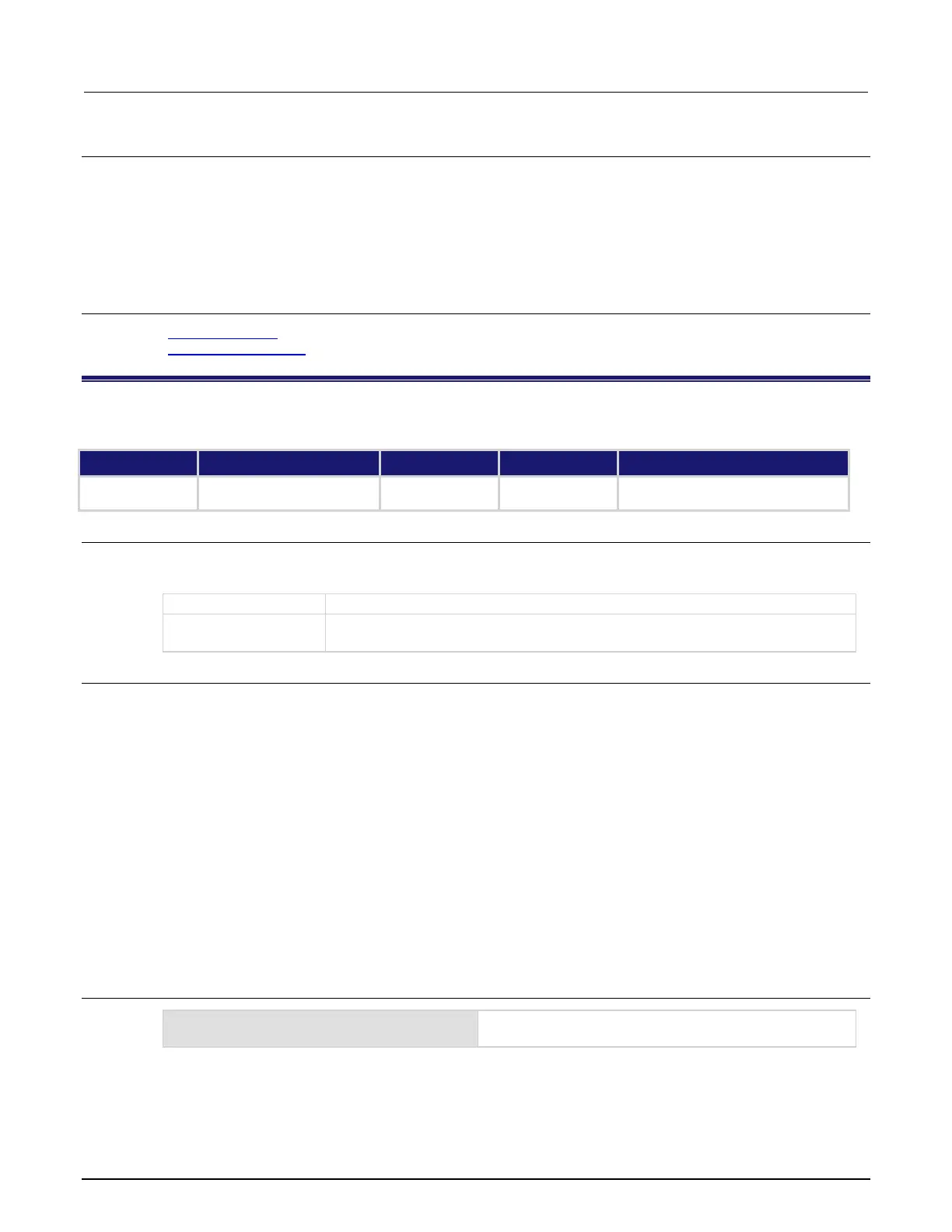